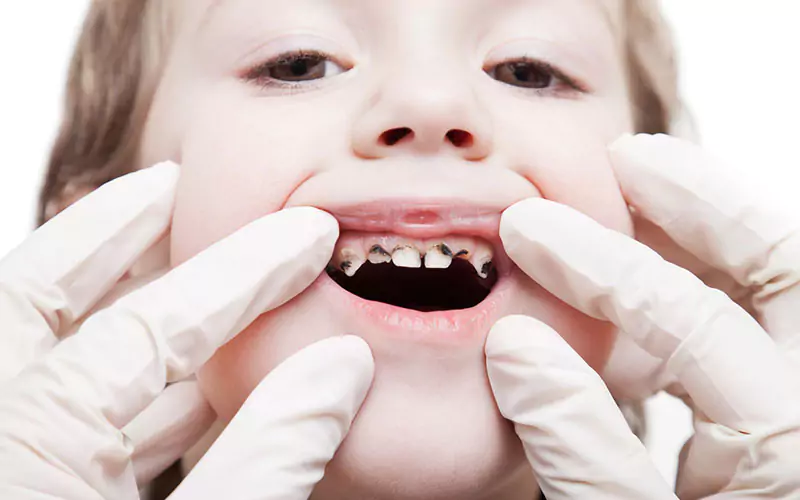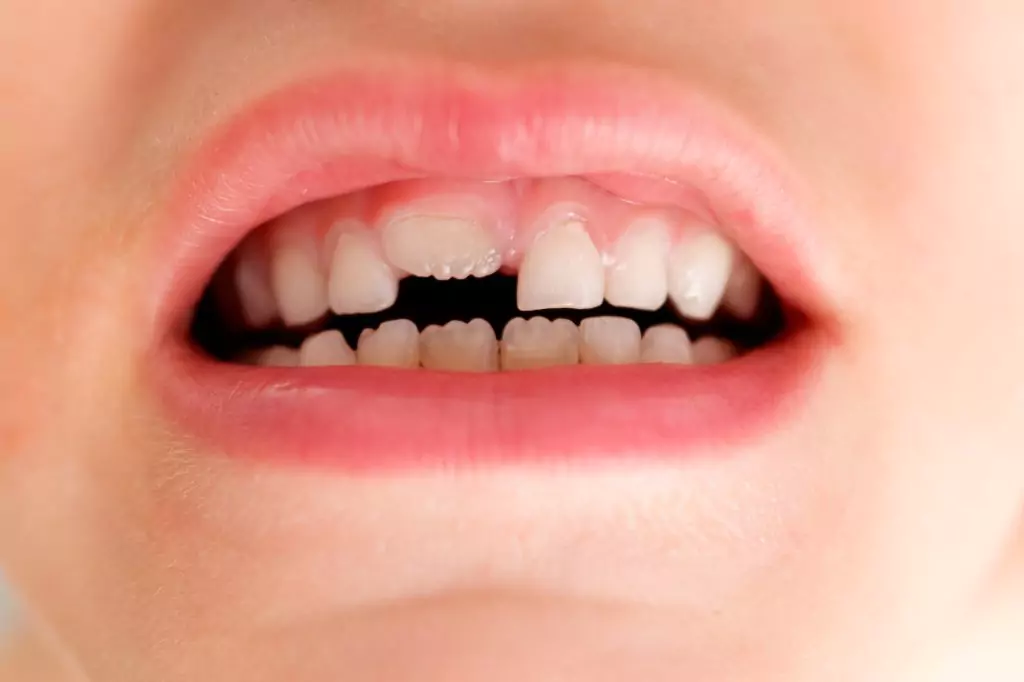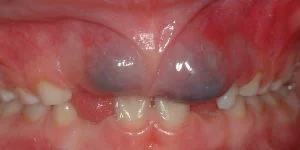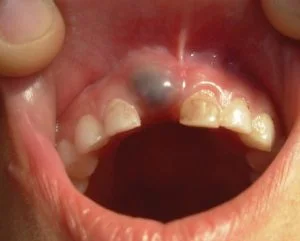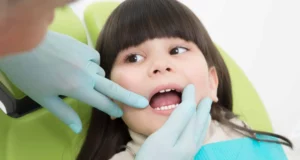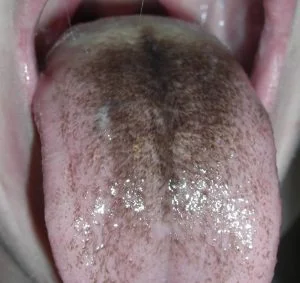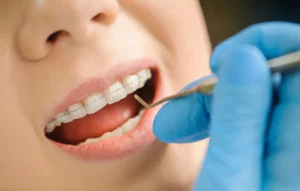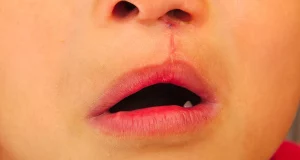Pediatric dentistry focuses on the oral health of children from birth to adolescence.
It is important that children visit the dentist from an early age to prevent dental problems and establish good oral hygiene habits.
Pediatric dentists care for a wide variety of dental issues that affect children, from tooth decay to orthodontia.
The specialty provides comprehensive care for the oral health of children and its main axis is preventive management, with the purpose of facilitating minors to develop self-care habits, as well as a positive attitude towards control procedures and dental treatment.
- Functional and maxillofacial orthopedics
- Management of dento-alveolar and maxillofacial trauma
- Early orthodontics
Pediatric dentistry works in two areas of children’s oral health:
- Solve dental events that are registered.
- Facilitates the environment for proper development of the final dentition.
In this section, you will find information and guidance on the different options offered by pediatric dentistry for the oral health care of children, such as behavior management and sedation, the most frequent pediatric dental events, dental phobias, and care services dentistry for special needs.
Fact Checked
Our team of writers, editors, and medical experts rigorously evaluates each article to ensure the information is accurate and exclusively cites reputable sources.
Behavior management and sedation in pediatric dentistry is a fundamental aspect that requires the attention and skills of the dentist.
Children often manifest fear and anxiety before a visit to the dentist, a situation that makes treatment difficult.
Parents should discuss behavior management options with their dentist to determine the best option for their child.
What are the techniques that facilitate the conduct of dental procedures?
- The communication of parents with their children
- Exalt the good behavior of the child in the dental office
- Show the child the instruments and explain what each one does (tell – show - do)
Appropriate behavior management and conscious sedation help children feel more comfortable and confident during dental visits.
Achieving a good level of adaptation of the child to the different dental procedures facilitates the development of the procedures that are required and care for their oral health.
Dental diseases in children are frequent, and it is important to pay attention to the signs to avoid more complex situations in the future.
What are the most common dental conditions in children?
Several dental diseases are diagnosed in children, some of them are:
- Dental cavities
- Crowded or crooked teeth
- Dental injuries such as broken or chipped teeth
Prevention, treatment, and good oral hygiene are the basis for maintaining children’s dental health.
Dental sensitivity is another condition that affects the oral health of children, although it also occurs in adults.
Parental attention is necessary to identify dental difficulties that occur in children and provide timely treatment.
Dental phobia is a frequent barrier in pediatric dentistry that affects many children and hinders the dental care required to maintain good oral health.
Its correct management helps children overcome their fears and facilitates oral health care.
Pediatric dentistry has different strategies that facilitate the management of dental phobia. Some of those are:
- Explain to the child the function of each instrument and what will be done with them.
- The projection of films or the reproduction of relaxing music.
- The availability of different recreational elements such as games, stories, etc.
Dental phobia derives from the fear of receiving dental treatment and may have its origin in previous experiences.
The dentist’s work with the collaboration of the parents is important to identify the best strategy to help manage the situation.
What are the strategies for managing dental phobia? How can the pediatric dentist support this management? How to find effective care to manage the situation? Three questions you find the answers in this note.
Early orthodontics is a treatment that is performed on children to monitor the dental growth of children and identify possible problems and treat the situation on time.
Treatment is required in those cases where bite difficulties are detected in childhood.
Some benefits of early orthodontics are:
- Improves the position of the teeth and jaw
- Improves oral function
- Reduces the need for orthodontic treatment in the future.
Early orthodontics follows the growth of the jaw and dental arches to be in the correct position. Treatment can also correct bite issues.
Early orthodontics is recommended before jaw growth is complete. The ideal age for treatment is generally recommended 7 years.
Taking care of the oral health of children from an early age is essential to reduce the possibility of having dental problems in the future. Children who learn to care for their teeth and gums from an early age establish healthy patterns that help maintain oral health.
What care should be taken to promote the oral health of children?
- Establish a dental care routine
- Caring for milk teeth
- Do not use pacifiers or bottles after 12 months (1 year) And there is more…
Developing this habit in children and helping them to assume other behaviors is relevant to good oral health.
Preventive dental care is essential for children’s oral health. Putting these recommendations into practice contributes to the oral health of children and the well-being of parents.
Find out how…
The eruption of teeth in children is a natural and necessary process that occurs during their development.
Tooth eruption begins around 6 months of age, when the first milk teeth begin to appear. This process continues through 3 years of age, when all milk teeth should have erupted. During this time, children may experience various symptoms associated with tooth eruption.
What are the symptoms?
- Pain
- Inflammation of the gums.
- Difficulty sleeping and eating
- Fever
- Diarrhea
In this note, you will find recommendations to manage the teething process and guidance to find medical help, if required.
The eruption of teeth is a normal process in the development of children. With proper care, children can successfully navigate this stage and develop long-term healthy teeth.
Oral habits develop during childhood and can have a significant impact on long-term dental health.
They are patterns of behavior that involve the mouth and teeth, and can affect oral health, cause serious dental problems if not treated properly.
These habits can have complex consequences on oral health:
- Jaw deformation
- Dental misalignment.
- Difficulty eating food
These are some effects, if not treated in a timely manner.
Treating oral habits and avoiding their effects is a relevant aspect for comprehensive well-being.
Oral health education is a relevant factor for oral health care and the prevention of dental diseases.
Doing oral health education with children requires a strategy, some steps that facilitate the appropriation of those oral hygiene habits and that are not imposed.
- Daily brushing and flossing
- Know the symptoms of dental events
- Promote healthy eating
Parents and child caregivers share the responsibility of guiding minors in oral hygiene care, from an early age. They are agents of change in oral health habits.
These are some aspects that this educational strategy includes. Its implementation and achievement of the objective requires parents and caregivers to participate in the action.
Oral hygiene has a direct impact on the oral health condition, for this reason taking care of the oral health of children from an early age is essential to reduce the possibility of having dental problems in the future.
Talking to children about the importance of oral hygiene and its benefits is a relevant aspect.
Generally, when talking about oral hygiene, it is related to tooth brushing and flossing, but it includes other aspects such as:
- Milk teeth care
- Healthy eating
- Regular visits to the dentist
Children who learn to care for their teeth and gums from an early age establish healthy patterns that help maintain oral health.
Maintaining good oral hygiene is essential for children’s oral health and their overall well-being.
In this note, find a guide that will help you strengthen the practice of good oral hygiene with your children.
Special needs dentistry is a branch that focuses on the treatment of patients with disabilities or special requirements.
Who does special needs dentistry focus its work on?
- People with physical disabilities
- People with emotional or mental needs
- People with medical disabilities
Special needs dentistry has gained relevance as the population ages and the number of people with disabilities and special needs increases.
People with special conditions should receive personalized attention adapted to the specific needs of each patient.
This note shares information about the services offered by this specialty of dentistry.




